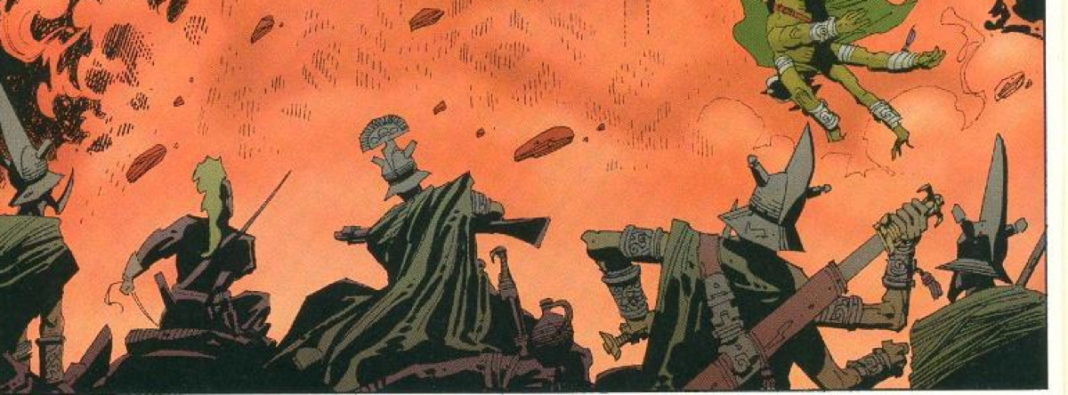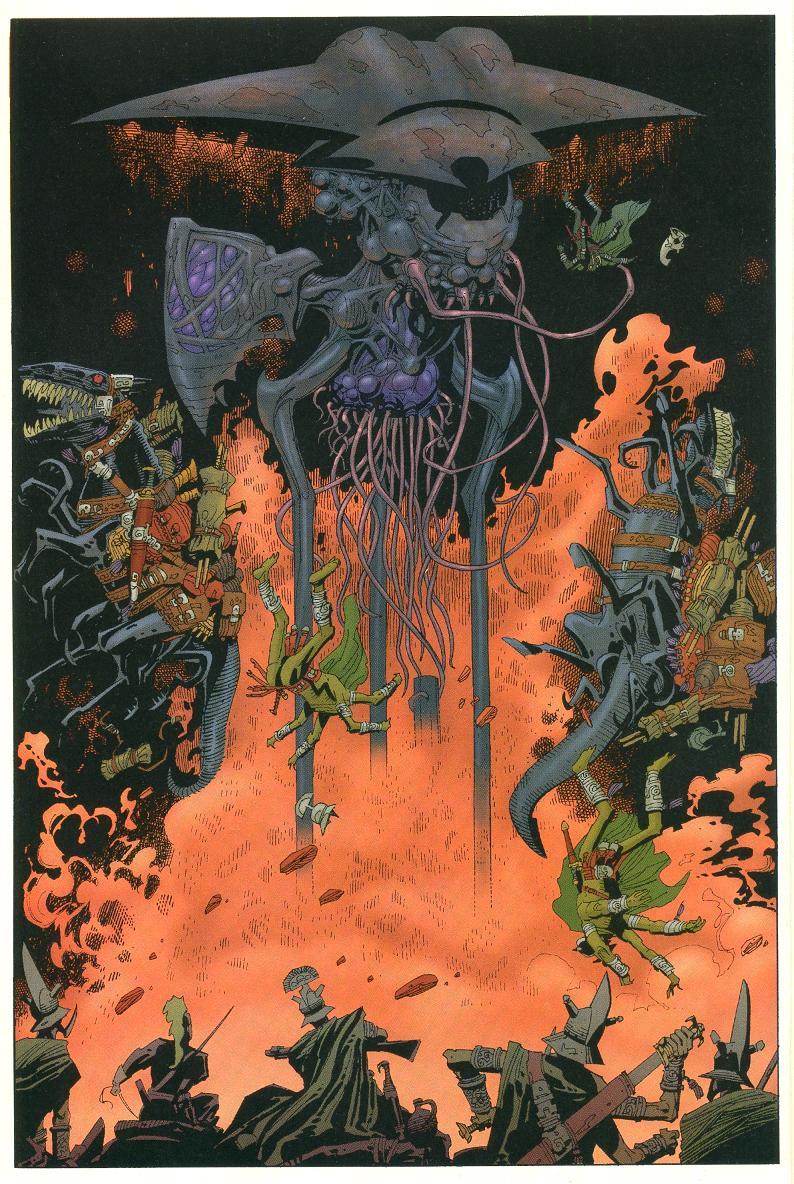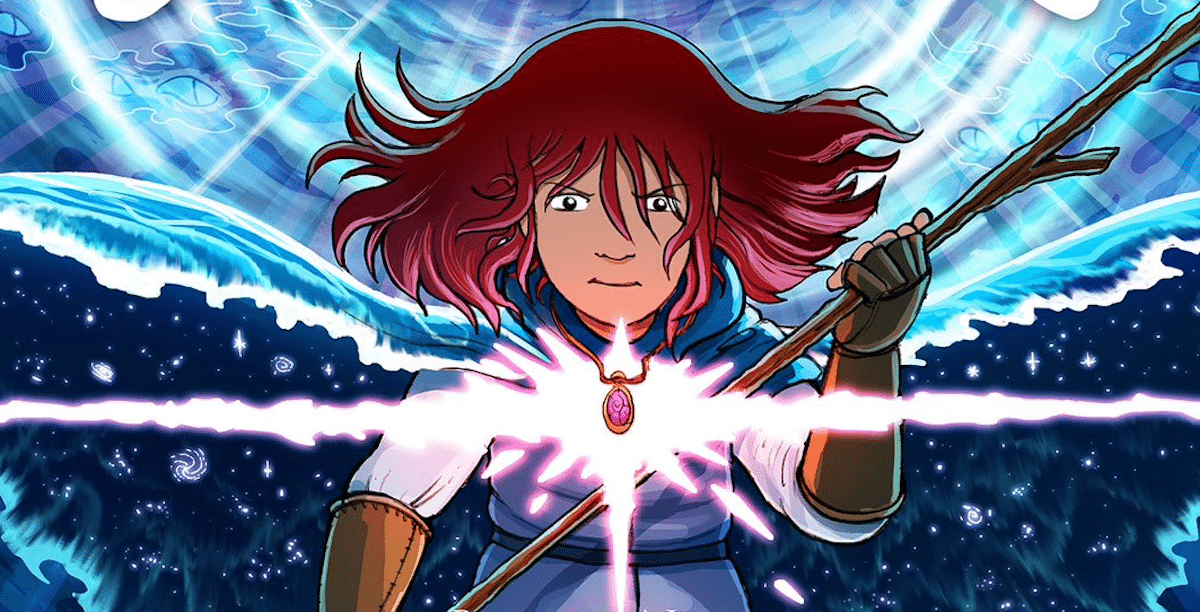§ Nice Art: Kevin O’Neill, ladies and gentlemen. From League of Extraordinary Gentleman Vol. 2 #1 written by Alan Moore.
§ Alan Moore is not a recluse, and he’s perfectly lovely in person and in conversation, but when you bring up certain topics, he waxes wrathful in language that few living or dead can match. Thus in this interview – conducted in 2016 for a Brazilian fanzine and just published in English yesterday for Moore’s birthday – when asked about superheroes, as is his wont, he lets fly.
What was the impact of popular heroes comic books in our culture? Why are people fascinated by alternative realities? I think the impact of superheroes on popular culture is both tremendously embarrassing and not a little worrying. While these characters were originally perfectly suited to stimulating the imaginations of their twelve or thirteen year-old audience, today’s franchised übermenschen, aimed at a supposedly adult audience, seem to be serving some kind of different function, and fulfilling different needs. Primarily, mass-market superhero movies seem to be abetting an audience who do not wish to relinquish their grip on (a) their relatively reassuring childhoods, or (b) the relatively reassuring 20th century. The continuing popularity of these movies to me suggests some kind of deliberate, self-imposed state of emotional arrest, combined with an numbing condition of cultural stasis that can be witnessed in comics, movies, popular music and, indeed, right across the cultural spectrum. The superheroes themselves – largely written and drawn by creators who have never stood up for their own rights against the companies that employ them, much less the rights of a Jack Kirby or Jerry Siegel or Joe Schuster – would seem to be largely employed as cowardice compensators, perhaps a bit like the handgun on the nightstand. I would also remark that save for a smattering of non-white characters (and non-white creators) these books and these iconic characters are still very much white supremacist dreams of the master race. In fact, I think that a good argument can be made for D.W. Griffith’s Birth of a Nation as the first American superhero movie, and the point of origin for all those capes and masks.
This bit, released on Twitter by our own Kyle Pinion, was well-timed to speak to the current Art vs Superheroes dialog, and seemed to be talking about the Watchmen TV show, and so got everyone talking about Moore again. I wrote about all this 7 years ago. Having interviewed Moore a few times, I can testify that he is really happy not to think about these things, and couldn’t’ give a rats ass about a TV show, but when people ask, he delivers. It’s as true then as it is now: if you want to get hits, gets some cranky-sounding Alan Moore sound bytes.
§ Meanwhile, Lou Ferrigno was also cranky about…the Hulk! He says he didn’t like what they did to the Hulk in Endgame because the Hulk should be a raging creature born of the atom.
“What’s happening is that the first two Hulk movies, the CGI was improving, but the last one, Endgame, I was disappointed. Because the Hulk needs to be hideous, he needs to be a creature. You see in Endgame, Mark Ruffalo – I think it has a lot to do with him and Disney – I didn’t like the way it portrayed Hulk. It took away that beauty, that quality of the Hulk. That’s why a lot of people liked the series.” Lou Ferrigno then went on to say that “too much” of Avengers: Endgame was “extreme with the spaceships, the shooting, the outer space.” As much as he didn’t like Smart Hulk in the movie, it sounds like he really didn’t like the story as a whole either. Ferrigno just really does not seem to be too happy with the MCU’s current state of affairs. He explains.
Ferrigno made his comments on a panel at Hamilton Comic Con. I guess, having once played the Hulk, he is qualified to speak out on the portrayal of the character and when asked on panels, he obliges with criticism. Anyway, if you want to get attention, be negative!
§ Edwin Turner reviewed Chris Ware’s Rusty Brown for TCJ:
Rusty Brown is a sprawling story about memory and perception, about minor triumphs and chronic failures, about how our inner monologues might not match up to the reality around us. In Ware’s world, life can be blurry, spotty, fragmented. His characters are so bound up in their own consciousnesses that they cannot see the bigger picture that frames them.
§ The best comics gathering in North America is probably Comics Camp – Alaska Robotics Mini-Con – which is literally people going to a camp in Alaska and hanging out. Maybe I can go someday! Applications are now open. Kazu Kibuishi, author of the hugely popular Amulet series, is among those going, and he tweeted this
15 yrs ago, I was fortunate to be one of a group of comic creators working together to make the FLIGHT anthology. The books are out of print now, but its spirit lives on w/ folks like @alaskarobotics and @gallerynucleus. Check out Comics Camp: https://t.co/2Xpnpv9yrc pic.twitter.com/DUCbAysFvv
— Kazu Kibuishi (@boltcity) November 19, 2019
It’s sad to think that these books are OOP, but they made a huge impact on a whole generation of cartoonists
§ Blogger Sean Kleefeld has been not blogging for a while, due to recovering from an auto accident, but he’s back! and he’s promoting a book about Webcomics coming out in 2020 from Bloomsbury Comics Studies.
I’ve already managed to mention my upcoming book twice in the first paragraph, so let me get some of that info out of the way. Bloomsbury has a Comics Studies series of textbooks focusing on different types of comics. Mine will be the fourth in the series and examines the broad spectrum of what we call webcomics. The handful of books about webcomics so far have primarily been how-to focused, with one looking at webcomics’ history up through its 2006 publication. This one does include some history, but it’s more of an analysis of the whole medium: the technology, the financing, the creative styles… what makes webcomics different and unique from printed comics?
In a subsequent catch-up post, he looks at Marvel’s ad content and finds it…curious.
I’ve been so up my own ass that I didn’t even notice Sean wasn’t blogging but I’m glad he’s okay and he’s back writing, and that book sounds good!









I agree about Moore, as he looks pretty from what I’ve seen of him in interview. Good for him. I’ve said before that I don’t like the direction of all of his work, but he is undoubtedly healthy in his attitudes and bodily, just from what little I’ve seen.
Please, for the love of all that is holy, proofread a bit better. Great article, but but boy do the spelling errors make me nuts. Thanks.
Comments are closed.